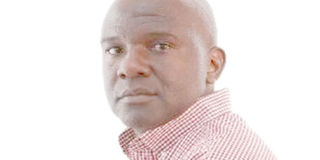Of horses and donkeys in African elections

Classic African elections especially where the incumbent is a long time occupant of the seat run on the same rules and after the same fashion.
To get this far, we must add, usually comes with a degenerated reputation of holding on to the seat of power by hook or crook.
The reputation of the man in question (almost all have been men) is ordinarily in tatters. He has seen and done it all.
He and his acolytes have been accused of stealing most of the public money they lay their hands on.
Their other sins being electoral fraud, beating and killing their opponents, padding every public service job with their relatives, clansmen, and village mates plus bootlickers and useful idiots from all over the place.
The passage of time has seen them promising and recycling promises that they have nothing new to promise except the ridiculous.
Their preoccupation now becomes reinventing themselves and their mission to a point that even the most naïve or optimistic of those that they lord it over find it difficult to take them seriously.
Gradually, they have two options in subsequent elections. One is to use coercive methods to subdue their opponents especially the ones who oppose them with conviction.
So they will use every excuse in the book to disrupt their opponents and ensure that they find it extremely difficult if not impossible to reach the electorate.
The police will be on hand to disrupt their rallies. FM radios and private television stations will avoid them like a plague for fear of the authorities shutting down their businesses.
The second option is more subtle and somewhat covert. Here the intention is to ‘bastardise’ so as to discredit plus weaken the whole electoral process and the notation of democracy as we know it.
The aim of it all is to generate pessimism and cynicism plus electoral fatigue among well-meaning minds and keep them as far away from political discourse and governance issues as possible.
(They may as well find comic relief in other matters like following European football league and salacious light weight banter on social media and even take pride in claiming that they are apolitical.)
The trick here is first to hand pick their own opponents and throw them into the political arena as candidates. These ones achieve three things. They show that there is tolerance and democracy and the stage is open for anyone irrespective of their tribe or creed.
Secondly, because they are as diverse as can be they use them to pinch votes from genuine opposition candidates.
In case of extreme electoral fraud the vote of a viable opposition candidate may be donated to them (especially if they are the unserious type) by the electoral body to show that they are at par with serious opposition.
To get the drift you pick a joker from nowhere. He hardly campaigns and at the end of the election scores 1.2 per cent while a serious candidate say a former Vice President who falls out with the big man by contesting against him ends up with 2.1 per cent. The public perceives that they are ‘almost the same’ and that the former Vice President was ‘overrated.’
Thirdly, you plant red herring type of candidates who divert the attention of those following the election.
They add color and drama to the process running out of fuel, failing to communicate in the official language and making ridiculous proposals and promises.
Such candidates spend a lot of their resources fighting genuine opposition by branding them worse than the incumbent.
This diversionary media agenda preoccupies considerable space and takes attention away from whatever serious issues the election should be about.
These types of candidates are normally used to paint a picture that discredits sections of society in the eyes of the public.
It works fine because many well-meaning and credible people keep away from politics for fear of reprisals by the government. They fear jail, disruption of their financial base and economic survival streams plus isolation from friends and family as they become marked men.
The vacuum is then filled by people who do not mind about their reputation and have no qualms to make a mess of themselves. It is this nuisance value that makes them an asset to the establishment.
For instance the last election saw a candidate from Central Uganda while the next has two that have left people talking disparagingly.
People wonder how the once prosperous region of landed and learned gentry that produced astute politicians like Rhoda Kalema, Joyce Mpanga, Benedictio Kiwanuka, Ignatius Kangave Musaazi, Abbey Kafumbe Mukasa, Ssebana Kizito, Bidandi Ssali, Abu Mayanja, Mayanja Nkangi etc. now delivers insignificant candidates at the national stage.
Their reputation is falling over each other to become the clowns of the election.
Which reminds us of Kenya’s veteran opposition politician Raila Amolo Odinga who when asked about the many candidates in the last election, responded in Kiswahili, “Uhuru na mimi ni farasi, w’ingne ni punda.” (Uhuru Kenyatta and I are the serious horses in the race, the rest are just donkeys.)
One does not have to be very critical to tell the horses from the donkeys in the coming election.
It is how and why they join the race that is of interest.
Twitter: @nsengoba




